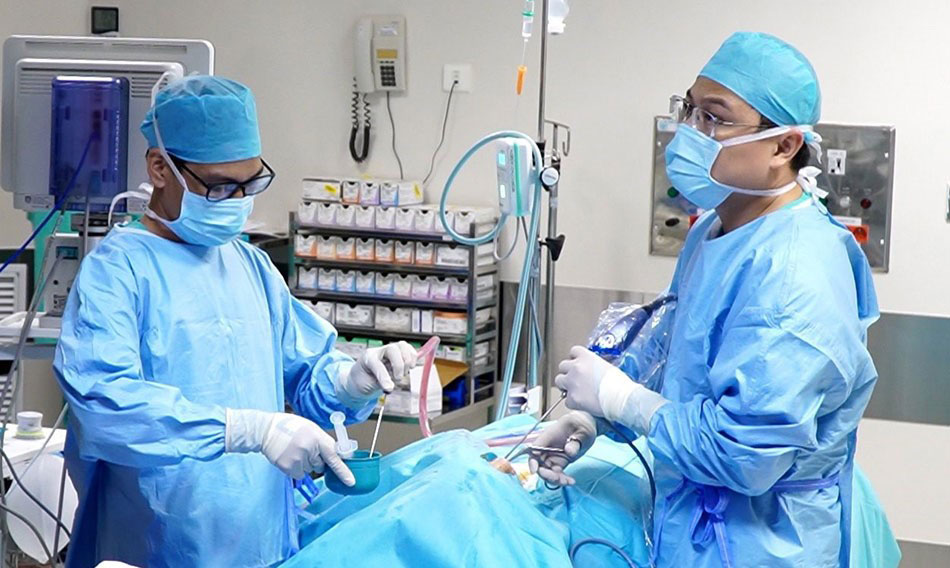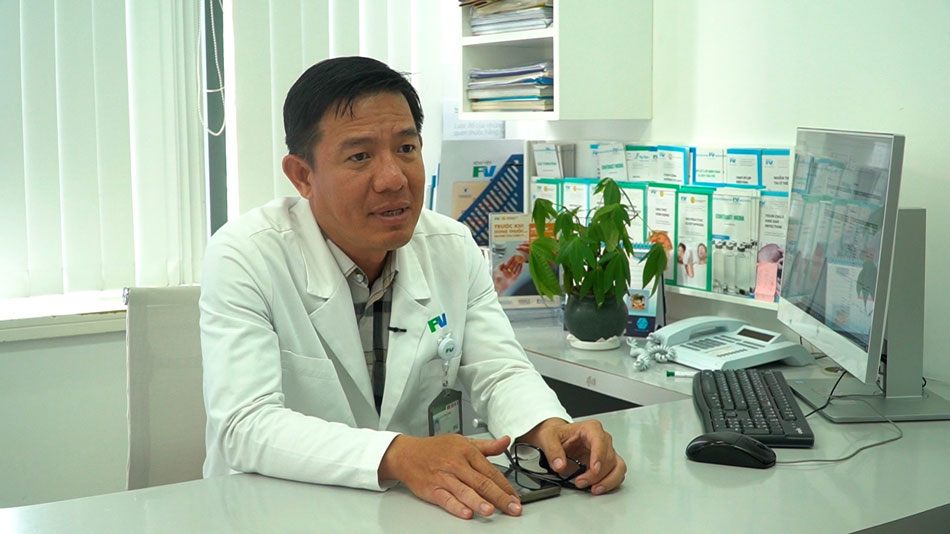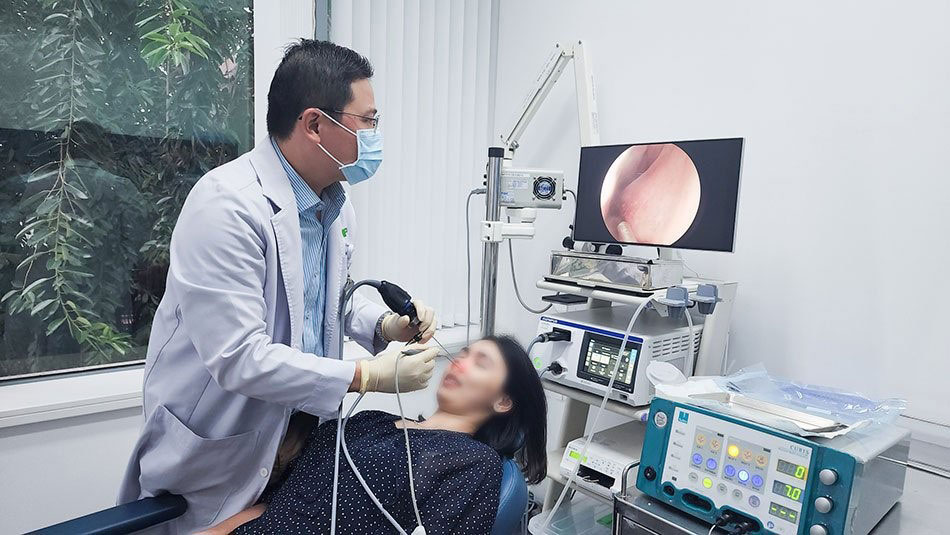A 70-year-old male patient from Cambodia has undergone successful surgery at FV Hospital for a large mucocele in his left cheek that was causing facial deformity. The patient also suffered from severe allergic fungal sinusitis, resulting in a loss of the sense of smell.
Doctors discovered the patient’s severe allergic fungal sinusitis during the surgery to remove the seven-centimetre frontal sinus mucocele.
In October 2023, 70-year-old Cambodian patient Mr X. arrived at FV Hospital to receive treatment for a large tumour that was deforming the left side of his face. Upon examination, Dr Le Phu Cuong, Specialist Level II, Otorhinolaryngology Department at FV Hospital (ORL or ENT) discovered a 7 cm mucocele that occupied his frontal sinus and a portion of the left anterior ethmoid sinus.
Mr X. mentioned undergoing sinusitis treatment over 40 years ago in Cambodia. However, when the sinusitis recurred, he resorted to purchasing oral medications without seeking further treatment. Around five years ago, a tumour appeared on his left cheek. Over the last two months, the tumour showed rapid abnormal growth, exerting pressure on his eye and nose, causing pain and affecting his appearance. Concurrently, his nose became congested and he lost the ability to smell.
Dr Cuong explains that the cause of the frontal sinus mucocele was the obstruction of the passage connecting the sinus to the nose. Although rare, this condition often occurs in patients after traumas such as facial injuries or complications following sinus surgery. Despite being a benign tumour, due to its large size and erosive nature it had deteriorated the bone of the sinus wall, exerting pressure on the facial bone structure, posing significant risks. After consultation, ENT specialists recommended mucocele surgery to prevent further compression on the eye socket, which would lead to visual impairment, and potential pressure on nearby structures that could affect the brain.

Doctors perform surgery for mucocele and allergic fungal sinusitis in a Cambodian patient using endoscopic surgery.
“During the surgery, we observed that the patient had allergic fungal sinusitis. Therefore, the treatment involved the combined approach of removing the tumour along with managing the allergic fungal sinusitis,” shared Dr Cuong.
The endoscopic surgery, performed by Dr Cuong and the team, lasted for over three hours. Additionally, the team addressed the polyps within the patient’s sinus cavities that had arisen from allergic fungal sinusitis, causing the patient’s loss of smell. Notably, the entire procedure was conducted endoscopically, leaving no visible scars.
The patient was discharged three days post-surgery. During a follow-up, approximately two weeks after the surgery, Mr X. reported no more nasal congestion, and there was a significant improvement in his sense of smell. Importantly, the facial deformity on the left side of the patient’s face had completely resolved.
Treating sinusitis: Identifying the underlying cause of the disease
Dr Cuong says that sinusitis can stem from various causes, and Mr X’s case was allergic fungal sinusitis—a form of chronic sinusitis characterised by nasal congestion, nasal discharge, itching, and nasal polyps, which are noncancerous growths that develop within the nasal cavity, small in size, soft in texture, and often painless, but lead to nasal obstruction and a loss of smell.

According to Dr Cuong, the treatment for sinusitis should be based on its underlying cause.
Therefore, according to Dr Cuong, the treatment for sinusitis should be tailored according to its cause. For instance, in cases of allergic sinusitis (caused by pet allergies, pollen, dust), patients should avoid exposure to corresponding allergic triggers. If the sinusitis is due to an infection, the patient needs treatment for the infection. Sinusitis stemming from dental issues (sinusitis arising from an infection originating from inflamed areas around the molars and premolars of the upper jaw) requires dental treatment for the patient in conjunction with sinusitis treatment. In cases of persistent sinusitis caused by fungus or recurring sinusitis that does not respond to multiple treatments, surgery may be recommended by the doctor.
The decision to undergo sinus surgery is always carefully considered. Unnecessary surgeries can lead to damage, including the risk of empty nose syndrome,” cautions Dr Cuong. Additionally, poorly managed surgical cases could also be a cause of frontal sinus mucocele, as seen in the case of Mr X.
Dr Cuong advises sinusitis patients to visit reputable healthcare facilities for proper examinations and tailored treatment methods to avoid unnecessary surgeries.

Sinusitis patients at FV Hospital will be closely monitored by the attending physician throughout the treatment process
At FV Hospital, sinusitis patients undergoing treatment will be closely monitored by a primary physician throughout the treatment process. This approach aids in better disease monitoring and reduces the risk of recurrence. Particularly in surgical cases, the operating surgeon is also responsible for examining, monitoring, and caring for the patient before, during, and after the surgery.
For consultations and treatments related to sinusitis, please call the Otorhinolaryngology Department (ORL or ENT) at FV Hospital at: (028) 35 11 33 33.



